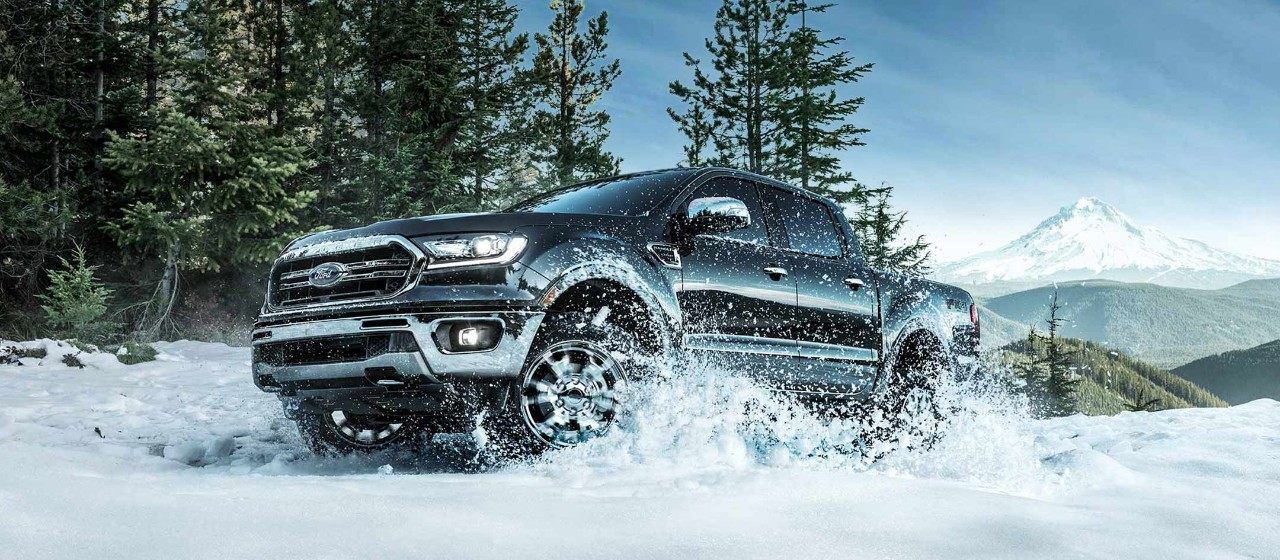Winter in Colorado can go from blue skies to blizzard conditions in the span of an afternoon. If you're a lifted truck owner living in the Centennial State, knowing how to prep your vehicle for extreme winter conditions isn’t just smart—it’s survival. From navigating steep, icy mountain roads to tackling snow-covered backcountry trails, your truck needs to be ready for anything the Colorado winter throws your way. This guide breaks down how to winterize your lifted rig so you stay safe, capable, and confident in every snowstorm.

Tires Make or Break Your Winter Setup Even with ground clearance and power on your side, a lifted truck without proper winter tires is a liability. All-terrain or mud-terrain tires may look aggressive, but they often struggle in snow and ice. Upgrade to a true three-peak mountain snowflake-rated winter tire, such as the Goodyear Duratrac or Falken Wildpeak A/T3W. These provide optimal traction, even in sub-zero conditions.
Weight Distribution and Traction Aids Lifted trucks are taller and often lighter in the rear, which can lead to fish-tailing on slick roads. Add sandbags or gear boxes over the rear axle to help with traction. Carry chains (and know how to install them quickly), especially if you're planning to drive over mountain passes where CDOT chain laws can come into effect.
Lighting Up Colorado’s Dark Winter Roads Shorter daylight hours and heavy snowfall demand excellent visibility. Consider upgrading to LED fog lights, ditch lights, or a high-output LED light bar mounted above the windshield. Not only will this help you see better in whiteout conditions, it’ll make your rig easier to spot on remote trails.
Keep Your Undercarriage Protected Colorado roads are notorious for magnesium chloride and salt brine, both of which can corrode your truck's undercarriage and suspension components. Apply a winter-rated undercoating or rust inhibitor before the season starts. After each snow run or highway trip, rinse your truck thoroughly, especially around suspension brackets and wheel wells.
Recovery Gear Isn’t Optional—It’s Essential Even the best drivers get stuck. Carry recovery straps, a snatch block, traction boards, a shovel, and a 12,000+ lb winch with a synthetic rope. You’ll be glad you came prepared when you or someone else finds themselves buried in a snowbank miles from the nearest town.
Battery, Fluids, and Heater Systems Cold temperatures hit hard on battery performance. Make sure your battery has enough cold cranking amps (CCA) and is relatively new. Check your coolant, top off washer fluid with a winter blend, and inspect your defrost and heat systems—especially if your rig uses aftermarket accessories that draw extra power.
Remote Starters and Cold Mornings Remote start systems are more than a luxury in Colorado winters—they’re a way to extend the life of your engine. Giving your lifted truck time to warm up before you roll out helps your oil circulate properly and reduces the shock of cold starts.
Lift Kit Checkup: Tighten, Inspect, Replace Winter driving puts new stress on suspension components. Make it a habit to check your lift kit hardware and alignment before the first storm rolls in. Grease your fittings and ensure your shocks and bushings aren’t worn or cracked. A loose control arm or worn bushing in icy conditions is a recipe for disaster.
Don’t Forget the Small Stuff Keep a winter emergency kit in your cab: gloves, blankets, flashlight, flare, ice scraper, extra food, and water. Consider installing heated side mirrors and investing in a heavy-duty floor mat setup to catch the snow and slush from your boots.
Built for the Elements A lifted truck isn’t just about flexing on dry pavement—it’s a powerful winter survival machine when properly equipped. Colorado's snow-covered roads and off-road playgrounds reward those who come prepared. Whether you’re commuting through Denver or carving your own path through the San Juans, a winter-ready lifted truck gets you there with confidence.
Looking to build or upgrade your winter rig? Lifted Trucks offers a nationwide inventory of fully outfitted, cold-weather-capable lifted trucks that are as tough as the Colorado winter.